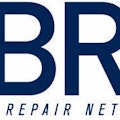As public acceptance grows and autonomous vehicle technology progresses, aftermarket liability is shifting from vehicle manufacturers to service and repair shop owners.
While regulations and legislation continue to evolve, service and repair requirements are moving forward as demonstrated by manufacturers stating written positions concerning shop owner obligations. The development of online vehicle tracking systems, and the nature of insurance will likely be heavily regulated, perhaps bolstering requirements.
Vehicle manufacturers are now using technology to collect data for evidence of liability exposure as well as repair warranty information. Recent developments in Advanced Driver Assistance Systems, or ADAS, are now capable of providing watchdog information, offering undisputable evidence.
For years’ shop owners have been encouraged to petition for pollution exemption. However, repairing vehicles today may result in unintended consequences. Auto dealers and collision shops claiming regulatory exemption are prohibited from using several products. Contact Nancy Larson, Director, Pollution Prevention Institute Small Business Environmental Assistance Program, Kansas State University for SBEAP compliance-specific questions.
To help protect service and repair shops, vehicle manufacturers encourage shop owners to enter into hold harmless agreements with suppliers. A scenario where technology that is “added on“ to a production vehicle is no different from any new product introduction. If the product can impact safe operation or the environment, the manufacturer or supplier of the equipment may have traditional products liability and product recall/ withdrawal exposure.
Steven Schillinger, CIECA Compliance Committee Co-Chair, stated “service and repair shop liability has recently become very important to insurance companies. A twelve-year-old EPA rule now affects every vehicle repair facility and most OE’s now require I-CAR training, which also helps achieve regulatory obligations.”
Just as a shop’s regulatory obligation may lead an insurance company to decline an account, the same will likely be true concerning risk in the future, said David Thorson, President and CEO at PrimeOne Insurance. Historical regulatory issues may indicate a systemic problem that an underwriter will analyze further? Careful observations and analysis of a shops history regarding regulations will be critical to expanding or restricting an underwriter’s appetite.
With over 20-years of garage keeper experience, Thorson has noticed a developing trend… “The collision shop insurance market is ‘hardening,’ which means that new risks in the vehicle service and repair industry are causing rates to rise. While no one wants to pay higher rates, this may be a good time for shops with good compliance history to ask their insurance agent for quotes from one or two companies and investigate what is available.”
About the Author
